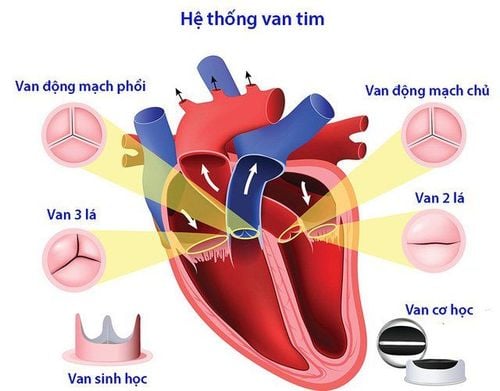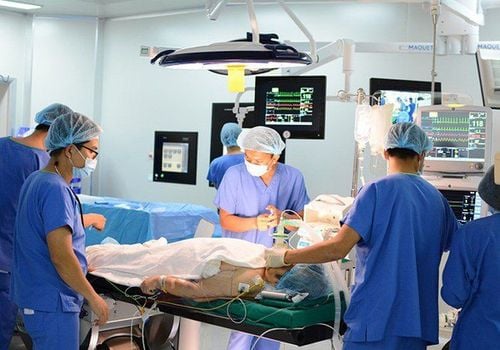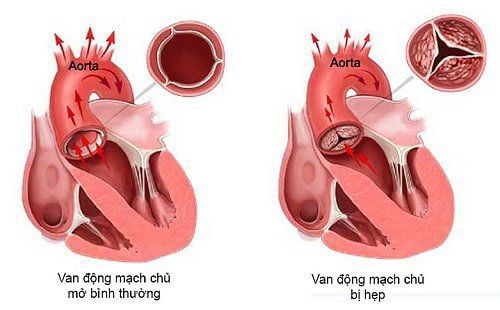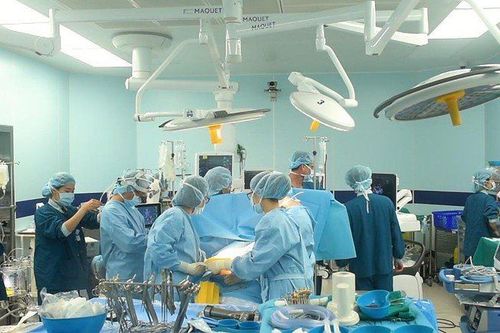This is an automatically translated article.
The article was professionally consulted by Dr. Nguyen Van Duong - Interventional Cardiologist - Cardiovascular Center - Vinmec Central Park International General Hospital.Aortic valve stenosis interferes with the flow of blood in the body. If the disease is not treated early and properly, it will cause dangerous complications to health. So how to treat aortic valve stenosis? Please refer to the article below.
1. How to treat aortic valve stenosis
Depending on the specific degree of aortic valve stenosis, the doctor will prescribe the most suitable method. Patients should be careful because although the disease is in the mild stage, there are no specific symptoms, but complications of aortic valve stenosis can occur at any time. Here are some specific treatments for aortic stenosis:1.1 Medical treatment
Currently, there is no drug that can return the narrowed aortic valve to its normal state. However, to limit symptoms and avoid the risk of heart failure, doctors may prescribe some drugs such as: anticoagulants, antiarrhythmics, calcium channel blockers, beta blockers...If the cause is narrow, aortic valve due to rheumatic heart disease, patients need to use some antibiotics to avoid myocarditis, endocarditis.
1.2 Method of aortic valve dilatation
This method is often used in young children. However, the method of percutaneous balloon aortic valve dilation usually does not bring long-term results and is easy to cause complications, so it is only applied in certain cases such as:
1.3 Surgery
Currently, there are a number of surgical methods for aortic valve replacement that are applied such as: Ross surgery (autologous valve transplant), allogeneic aortic valve replacement, biological valve replacement (differentiation), mechanical valve replacement. .Percutaneous valve replacement is evaluated as an alternative to surgery for aortic stenosis. This method is indicated in the following cases: the aortic valve is tight, the calcified valve is already showing clinical symptoms or the patient is elderly with many comorbidities.
Percutaneous aortic valve replacement technique was first applied on a patient with tight aortic valve stenosis in 2002. Previously, this patient was rejected by surgeons due to concerns about risk surgical muscle is too high.
Vinmec International General Hospital is the first hospital in Vietnam to perform this technique independently.
2. Percutaneous aortic valve replacement (TAVI) technique at Vinmec
2.1 Subjects of application
Patients over 60 years old, with severe aortic stenosis, valve orifice area less than 1cm2, mean transvalvular pressure difference > 40 mmHg. Patients with symptoms and prognosis of survival > 1 year. The patient had aortic and peripheral artery anatomy suitable for TAVI. The patient wishes to perform the TAVI technique for treatment. Patients are appointed by the “cardiology team” including an internal cardiologist, a cardiologist, an interventional cardiologist, and an anesthesiologist.2.2 Advantages
Less invasive technique Shortened procedure time, postoperative and hospital stay High success rate Less complications of infection, bleeding...2.3 Why should percutaneous aortic valve replacement be performed at Vinmec?

This is also the first medical facility to be awarded the certificate of "independent aortic valve replacement center" in Vietnam. GS. Vo Thanh Nhan, currently working at Vinmec International General Hospital, is the first cardiologist to be awarded the "Proctor" certificate in Vietnam. Support during surgery is a team of unified, highly qualified team to help bring the best treatment results for the patient.
Aortic valve stenosis needs to be treated early to avoid dangerous complications to health. Vinmec International General Hospital is one of the prestigious medical addresses that customers should choose to treat aortic valve stenosis with high efficiency.
Please dial HOTLINE for more information or register for an appointment HERE. Download MyVinmec app to make appointments faster and to manage your bookings easily.














